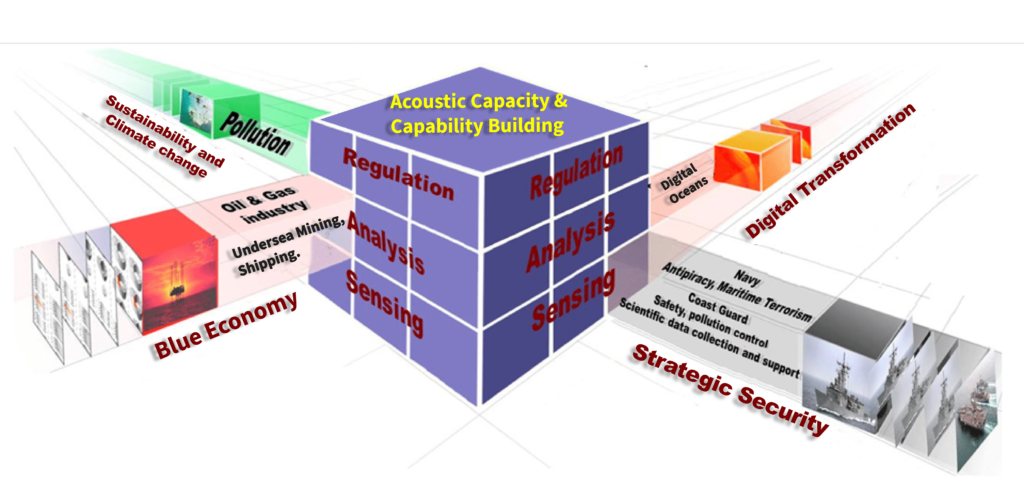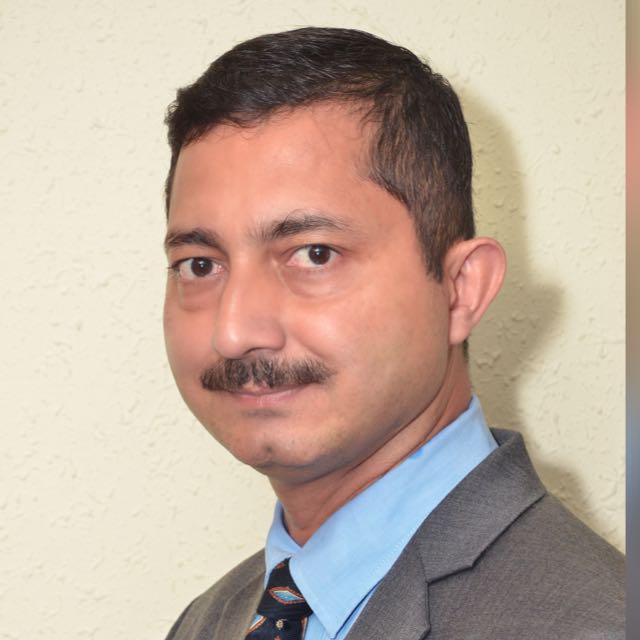- The recently concluded G20 Summit in New Delhi made a successful declaration to unite the global community and commit to “One Earth, One Family, and One Future.”
- Biosphere reserves are a great concept to ensure the protection of ecologically sensitive regions from the onslaught of so-called development.
- The UDA framework enables policy and technology interventions, along with acoustic capacity and capability building.
- The UDA framework enables policy and technology interventions, along with acoustic capacity and capability building.
- UDA-driven Biosphere Reserves need to be established with a clear focus on digital transformation
India is emerging as a global power, and the global community has significant expectations from Indian leadership to demonstrate affirmative action in terms of sustainable growth and climate change risk management. The geopolitical and geostrategic center of gravity in the 21st century has shifted to the Indo-Pacific region, and more and more nations are maintaining their strategic presence in the region. The Indo-Pacific strategic space, by definition, includes the tropical waters of the Indian Ocean and the Pacific Ocean. Thus, the contemporary focus must include the blue economy and ocean issues. The 2015 Paris summit for the United Nations Framework Convention on Climate Change (UNFCCC), under the Conference of the Parties (COP21), declared the roadmap to achieve climate goals. The 196 parties committed to the Paris declaration and formulated their own Intended Nationally Determined Contribution (NDC). India updated its NDC in August 2022 in a Union Cabinet meeting chaired by the Honourable Prime Minister Narendra Modi. The updated NDC is a step towards achieving India’s Panchamrit (five nectar elements) declarations at COP26 (Glasgow, United Kingdom), with enhanced climate targets. It also aims towards reaching net-zero emissions by 2070.
The recently concluded G20 Summit in New Delhi made a successful declaration to unite the global community and commit to “One Earth, One Family, and One Future.” The New Delhi Leaders Declaration has an exclusive component on harnessing and preserving the Ocean-based Economy. The declaration starts with a commitment to strong, sustainable, balanced, and inclusive growth. It is important to note that the declaration brings together diverse global powers with their unique geopolitical and geostrategic priorities to agree on a common agenda for global growth and prosperity. India today is partnering with global powers to shape the new world order.
Biosphere reserves are a great concept to ensure the protection of ecologically sensitive regions from the onslaught of so-called development. However, with changing times and excessive population pressures, the exclusive nature of biosphere reserves needs to give way to an inclusive concept. Coastal and riverine communities have to be allowed to coexist with nature. Traditional practices have to be encouraged, and modern science and technology tools have to be deployed to monitor and optimize the harnessing of underwater resources. Non-intrusive monitoring and an ecosystem-based approach, rather than species-specific studies, need to be prioritized. Conflict among multiple stakeholders, namely strategic security, the blue economy, environment & disaster management, and science & technology, needs to be minimized.
Tropical waters are extremely rich in biodiversity and underwater resources, both in marine and freshwater systems. However, they also face massive population pressures in coastal and riverine regions. Socio-economic and socio-political realities have ensured pre-modern governance mechanisms that are unable to address new challenges. The most important aspect is the sub-optimal sonar performance, which is vital for any underwater monitoring. The sonars designed and developed by the West during the Cold War period are suited for temperate and polar regions. The degradation of performance when deployed in tropical waters is of the order of 60%, thus demanding massive customization. However, customization demands a large-scale Shallow Water Acoustic Measurement (SWAM) exercise that is highly resource-intensive. Developing countries in the Indo-Pacific strategic space can hardly prioritize science & technology, thus remaining dependent on the West for such knowhow. The fragmented approach among these nations internally and at the regional level further aggravates the problem. Capacity and capability building across stakeholders and multiple levels must be undertaken in a nuanced manner.
The Underwater Domain Awareness (UDA) framework, proposed by the Maritime Research Center (MRC) in partnership with M/S NirDhwani Technology Pvt Ltd (NDT), is a unique concept for managing the challenges and opportunities of tropical waters. The UDA framework enables policy and technology interventions, along with acoustic capacity and capability building. The pooling of resources and synergizing of efforts across stakeholders, as shown in Figure 1 below, provides a schematic representation of the UDA framework.

The horizontal construct presents the four stakeholders and their specific resource requirements, along with the unique application-specific deployments. However, the core focus in tropical waters will be acoustic capacity and capability building to yield meaningful outcomes. The vertical construct includes a bottom-up approach, commencing with site-specific data collection, followed by analysis and the formulation of a regulatory framework. The current top-down approach, with minimal site-specific appreciation, is ad hoc and vulnerable to manipulation by external powers. Digital transformation will be a critical element in building a comprehensive and inclusive governance mechanism. Policies driven by ground inputs and supported by modern acoustic technology represent the most optimal way forward.
The oceans are a major source of carbon sequestration, making effective ocean management crucial to meeting COP targets. Real-time monitoring of underwater parameters is essential for ensuring effective ocean health management, with the governance mechanism relying on digital analytics inputs. Short and long-term Modeling and Simulation (M&S) efforts, along with AI-based data analytics, will be necessary to facilitate digital transformation. The digital infrastructure should manage multiple ocean-related and underwater aspects, not limited to blue carbon alone.
The United Nations’ declaration of the Decade of Ocean Sciences for Sustainable Development is significant, focusing on oceans and the Sustainable Development Goals (SDGs). Marine Spatial Planning (MSP) has become the de facto governance tool for ocean and freshwater space management. The Inter-Governmental Oceanographic Commission (IOC), driving the decade of ocean sciences for the UN, has prioritized MSP. MSP involves spatio-temporal mapping of underwater resources, sustainability assessments, and climate change risk evaluations. Real-time mapping enables policy and operational intervention with well-informed ground data-driven inputs. Given the vast area coverage required for underwater domain awareness management, M&S supported by field validation at critical locations is the optimal way forward. MSP should cover various applications, including deep-sea mining, fisheries, oil & gas, aquaculture, freshwater resources, water quality, pollution sustainability concerns, acoustic habitat degradation, nutrient contents, and more.
Implementing large-scale MSP across applications and concerns will demand unprecedented acoustic capacity and capability building. The digital infrastructure, particularly the computational framework for real-time data analytics, will require dedicated efforts. Offshore and inshore initiatives need nuanced domain expertise. The multi-disciplinary requirements should be coordinated to ensure effective output. This initiative must manage five pillars: research, academia, skilling, innovation, and policy, under one umbrella, necessitating significant policy support due to its strategic importance. It will be a game changer with a major impact on social and political dynamics.
Biosphere reserves are a macrocosm with multiple and diverse elements. Balancing people, economy, and nature within these reserves is crucial for success. Digital transformation with AI-based data analytics can effectively manage these aspects. The UDA’s digital transformation is manifested as MSP. Therefore, substantial efforts are required at multiple levels to ensure progress.
The way forward involves three steps: outreach, engage, and sustain. Outreach entails sensitizing stakeholders, policymakers, and practitioners about the nuances of the UDA framework and its relevance for biosphere reserve management. This outreach should occur at multiple levels with specific and generic content, including workshops, seminars, certificate courses, and both online and offline modes. Engagement includes UDA fellowships for students and young professionals, tailored to the requirements of stakeholders incorporating the UDA framework into their organizational structure. Policymakers must also transition toward digital transformation. The sustainability component translates into infrastructure development and policy drafting at national and regional levels, necessitating project-based and long-term activities to sustain this new approach.

Dr (Cdr) Arnab Das
About Author
A researcher, maritime strategist, technocrat and entrepreneur, Dr. (Cdr) Arnab Das is the founder and Director of Maritime Research Center (MRC), Pune and he personally drives all the initiatives. Dr. Das completed his Masters and PhD from Indian Institute of Technology, Delhi while serving in the Indian Navy as a uniformed officer for two decades.


